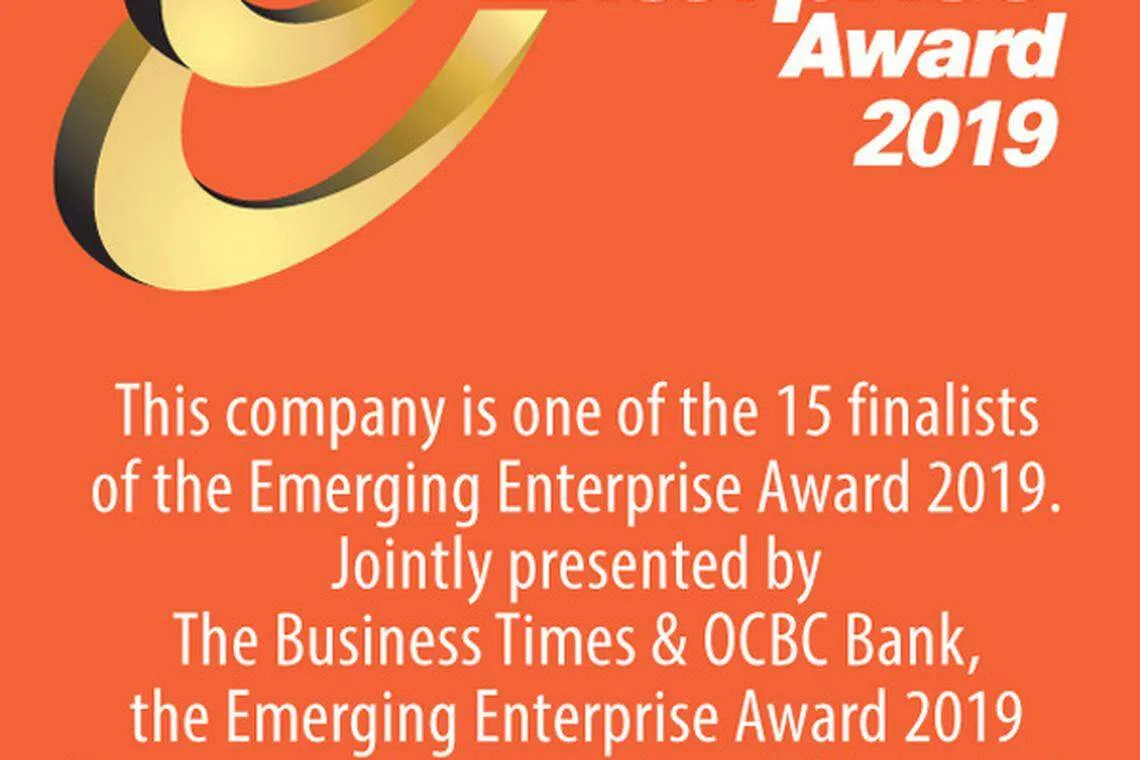Adding a spark to forex trading
Spark Systems' goal is to help develop a locally bred foreign exchange marketplace, says its co-founder and CEO.
FROM a little spark may burst a flame, as the saying goes. For Spark Systems, that is exactly the point.
Frustrated by the high costs and outdated platforms he had to deal with in foreign exchange trading, the firm's co-founder and chief executive officer Wong Joo Seng set out to spark a change in 2016.
"A lot of incumbents in the marketplace are very big names, but they have very old systems and they are definitely much more expensive," he said in an interview with The Business Times. "Spark was designed to compete in this space and to build cheaper, better, faster products."
The entrepreneur was previously founding chief executive at a financial services firm, where for every dollar he earned from trading, 40 cents was spent on exchange transaction costs.
Cost, therefore, is one of the arenas where Spark competes. The firm charges US$2 for every US$1 million worth of trades on its platforms, compared to the US$3 to US$8 its competitors levy.
MAS's support
Another arena is technology. Spark's platforms have artificial intelligence capabilities built into them, which allow traders to buy and sell at opportune times based on the algorithm's suggestions, said Mr Wong.
But the eventual goal, he added, is to help develop a locally bred foreign exchange marketplace, a move wholly supported by a "very determined" Monetary Authority of Singapore (MAS).
Currently, the matching of trades takes place in London, New York and Tokyo, where the trading and pricing engines are located.
That means that for a Singapore trader, routing an order to Tokyo - the nearest trading centre - will take 70 milliseconds, while London or New York spans 180 milliseconds.
A round trip, therefore, can take anywhere from 140 to 360 milliseconds, which is too slow, Mr Wong said.
"When markets are nervous because there's been an outbreak of news, it's important to get that fast access to market, but when you attempt to buy or sell, it gets rejected."
This is in spite of the fact that Singapore is the world's third largest foreign exchange trading centre, with average trading volume rising to about US$522 billion in June, up from US$495 billion in June 2018, according to MAS data.
If there were to be a Singapore-based marketplace, the latency could drop to 1 millisecond.
"That is a magnitude improvement that you cannot get just by writing a more efficient programme," said Mr Wong. "You must have the servers here."
And the idea seems to be bearing fruit. Last month, JPMorgan announced plans to establish an electronic foreign exchange trading and pricing engine in Singapore by 2020, with support from MAS, adding to its existing platforms in London, New York and Tokyo.
The bank joins other major financial institutions, including Standard Chartered, UBS and Citigroup in revealing plans to site their engines here.
Spark, meanwhile, stands to benefit from the establishment of a homegrown foreign exchange marketplace. The firm has seen its revenue double year on year since the debut of its platform in 2017, with revenue on track to exceed US$1 million this year.
Daily trading volumes, meanwhile, stand at about US$2.5 billion, a third of the US$7.5 billion a day required to break even.
At current growth, the 37-employee firm expects to break even in two to three years, Mr Wong said.
To get there, the firm is in the process of raising US$10 million at a US$70 million valuation, which Mr Wong expects to close in two to three months.
Spark was sparked into existence almost by accident. Fresh off the majority acquisition of his second firm - Spark is his third company - in 2016 by Alibaba's Ant Financial, Mr Wong received an offer he "could not refuse" from the venture capital arm of hedge fund Dymon Asia.
'Ideal' arrangement
Dymon was not only willing to fund his platform, it agreed to trade on his platform as well.
This was ideal, said Mr Wong, who is also a partner at Vickers Venture Partners, because "in the space of startups, there's two major points of risk - whether you can get investors to fund it, and will anybody use it?"
The fact that Dymon was able to do both was a "brilliant opportunity and a huge leg-up", he noted. A subsequent grant from MAS in the same year provided a further boost.
Of course, the threat of competition remains. What's to stop the incumbents from doing what he's doing? Nothing, Mr Wong said.
"There's no guarantee that after you raise and spend millions, that you will actually have a successful platform. But we believe we can do it."

BT is now on Telegram!
For daily updates on weekdays and specially selected content for the weekend. Subscribe to t.me/BizTimes
Companies & Markets
Meituan to debut in Riyadh as expansion beyond China quickens
Mapletree Industrial Trust to distribute S$13 million of divestment gains over next 4 quarters
K-pop agency Hybe’s internal strife wipes out 1.2 trillion won
Beijing city to subsidise domestic AI chips, targets self-reliance by 2027
Hong Kong bourse regains favour on hopes of a market revival
Chinese sellers go to TikTok school to reach buyers abroad
